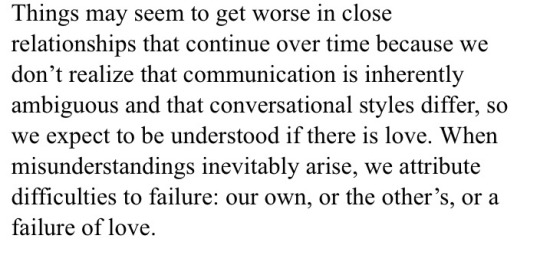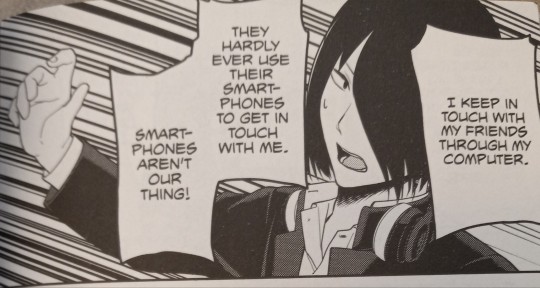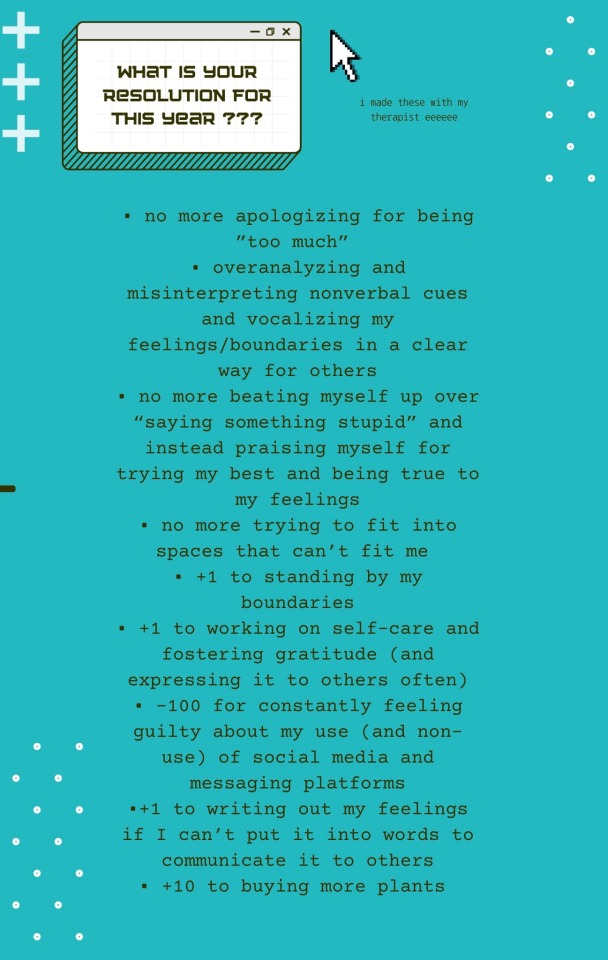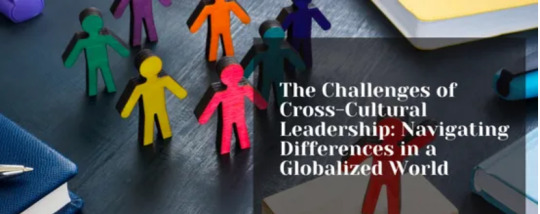#communication styles
Text
Be nice and don't mock tumblr users that communicate differently.
Examples:
1.) Typing quirks
2.) No punctuation
3.) Random Capitalisation
4.) Long run on sentences
5.) Frequently misspelled words
6.) Missing spaces between words
7.) Repeating words and sentences
8.) Posts audios and videos instead of typing
9.) Express themselves through custom emojis
10.) Use an AAC (Augmentative and alternative communication) device
Some users have intellectual disabilities, use speech to text, struggle with grammar, have hand tremmers, have high support needs, etc.
Regardless of how they communicate and their reason why, they still deserve respect. They are trying their best.
#intellectual disability#disability#communication styles#disabled community#communication#aac user#aac device#autism awareness#disability awareness#typing quirk#disability advocacy#poor grammar#grammar nerd#actually neurodivergent#actually neurodiverse#its the neurodivergency#neurodivergent#neurodiversity#autistic#autism#disability community#neurodivergent community#judgment free zone#no judgement#adhd#adhd brain
3K notes
·
View notes
Text

I graduated with degrees in both theatre, and interpersonal communications. There is NO reason for Sabine to be facing in right now. Not at all. This scene we see from multiple angles, and multiple shots, which means it was a conscious decision for Sabine to take a few steps closer, and to turn her body towards Shin.
Sabine has been captured before—we see it in Rebels, when she’s captured by the Seventh Sister. In that instance, she defiantly turned away from her, and was in much more danger than she is with Shin right now (considering Baylan promised not to hurt her).
Whether or not shin/sabine becomes canon, it was a conscious acting, and directing decision to have her loosen up after a moment, move closer to, and turn towards Shin. Shin is only holding one of her wrists. It wouldn’t be uncomfortable for Sabine to keep facing forward, but instead she turns, and basically half loops her arm behind hers. Quite literally, this is how I turn and follow my own girlfriend, or how she would follow me. In fact, my first thought was how strikingly similar this positioning is to my own, actual, sapphic relationship.
No matter what becomes of them, the foundation is there, and it’s very, very telling in their body language—and I can say without a doubt, that was done intentionally.
#sabine wren#sabineshin#sabinewren#shin hati#shinhati#wolfwren#wrenwolf#sabine x shin#shin x sabine#shinbine#sabine wren x shin hati#shin hati x sabine wren#ahsoka spoilers#ahsoka speculation#Ahsoka episode 4#ahsoka series#theater#analysis#film analysis#communication styles#theater analysis
679 notes
·
View notes
Text
I think we're underutilizing EM fields in TF in general. I mean, we got the romantic and plantonic ways down, but:
EM fields are one of their basic communication skills, so are there differences between age groups and classes? Like newsparks and sparklings with spikey fluctuations and pure, simple emotions; emotional regulation classes/mentoring groups/buddy systems for newbuilds because it must be intense to suddenly come to life and then having to deal with everyone else around you on top of your own newfound feelings; city-states with Rules and Regulations on how, what, and when to interact as well as cultural differences and stereotypes.
(Example: Seekers are considered violent with animalistic tendencies because they mob. You don't mess with one. They group together to stand cohesively. Whereas Seekerkin look down/pity other frames for their loneliness, for how fragility of their social ties.)
We have neutral body language and expressions as well as "resting bitch face" and the "murder walk," so similar ways with fields?
Do certain castes/professions need certain training or Forged mecha have the innate talent to use their EM fields in a particular way that's a boon to their work?
The jarring sensation of someone immediately disappearing from close, personal range
Would Cybertronians find it terrifying to find a space that suddenly became quiet and silenced in every single way?
The immense clash by someone that severely outclasses you, being crushed beneath the wave of their own superiority and dismissal or sucked down in a whirlpool of pure terror (similar to killing intent in Naruto)
#transformers#communication styles#cybertronian language#cybertronian biology#cybertronian culture#my thoughts#my writing#maccadam
82 notes
·
View notes
Note
Why do you think Obi-Wan stayed a padawan for so long? It’s arguable that if Qui-Gon hadn't found Anakin and desperately wished to train him, he wouldn't have put Obi-Wan up for the trials. 
(I had such a hard work day yesterday, so I am going to self-indulgently woobify Obi-Wan without restraint.)
It's because Obi-Wan is a convenient little ego-boost and emotional punching bag for Qui-Gon to keep around.
Your question begs the inverse question: what would be the performance indicators that would make Qui-Gon, and the council, deem Obi-Wan ready for the trials? What would he have to be doing differently in order for Qui-Gon to accept him as ready?
And that's really hard to figure out, because we see evidence of Qui-Gon constantly moving the mark (in TPM movie, but even more so in books about that era and before.) If Obi-Wan senses something in the force and Qui-Gon doesn't, then Obi-Wan is being overly paranoid. If Qui-Gon senses something Obi-Wan doesn't, then Obi-Wan is an idiot. If Obi-Wan is proven right about everything, then he's arrogant for thinking he knew better in the first place. And god forbid Obi-Wan gather enough self-confidence to suggest that he might be ready for the trials; then he's "headstrong and has much to learn about the living force."
It seems that the only way Obi-Wan can do right is to be and think exactly like Qui-Gon at any given moment. Which is impossible, because they have very different relationships to the force. (Obi-Wan honors this fact; Qui-Gon dismisses it.) Alternatively, Obi-Wan can do the right thing if he just blindly obeys Qui-Gon's wishes (which he has to magically read his mind for because Qui-Gon doesn't communicate clearly, to make the challenge more spicy,) but blind obedience is so antithetical to progressing to be an independent Jedi knight supposed to work in conversation with the force itself, so making Qui-Gon happy is the opposite of progressing in his training.
Qui-Gon talks a lot of talk about embracing difference in lifeforms and going with the flow, but he refuses to go with Obi-Wan's flow or even acknowledge the value of Obi-Wan's different point of view. But I don't even think Qui-Gon sincerely wants Obi-Wan to be like him; I think he enjoys the power trip of watching Obi-Wan bend over backwards trying to meet his expectations, fail, hate himself for failing, and bend over backwards to try to meet the next expectation. Obi-Wan is not his "preferred" type of boy (the Anakin and Xanatos type with tons of midichlorians whom HE discovered and could have as his timeless legacy) so he's not invested in building Obi-Wan up to be something Qui-Gon can be proud of. Obi-Wan's function for Qui-Gon is not to be his future legacy: it's to emotionally wait on him, to make him feel smart and big by comparison, and to provide insight from the force for Qui-Gon to use or ignore without acknowledgment.
And Qui-Gon's interpretation is what the council hears. It's not like the council is monitoring Obi-Wan's growth; they're just hearing Qui-Gon talk about how arrogant and shortsighted he is or whatever. And Obi-Wan is a professional at self-doubt and self-hatred, so even when he knows on some level that he's right about something, he still internalizes Qui-Gon's disapproval and fundamentally believes that he's done something wrong by being right. That's why Qui-Gon can keep him for so long! I think if Obi-Wan had more self-worth, then a) he wouldn't be as fun to gaslight and Qui-Gon would get bored of him sooner and b) Obi-Wan might seek out a different perspective on his progress and realize he's being actively held back.
I guess I feel like if Obi-Wan, at any point, was sent to a different Master, he would have graduated faster, and would be just as effective a Jedi knight, if not more.
#abused child behavior#asks#communication styles#I went back through book excerpts to research my answer here and they made me cry lol.#Qui-Gon is so fucking self-absorbed! And mean to my blorbo.#cryptic. on purpose. again.
38 notes
·
View notes
Text
im rather self-conscious about it of course but there is something a little satisfying about watching the cogs in someones brain turn as they figure out how to talk to me when i take things more literally than most people do. yeah it IS strange communicating in a way youre not used to isnt it. it IS uncomfortable having to change your natural way of speech in order to be understood huh
#asd tag#cottons thoughts#i dont intend this to me mean and of course i try to understand what people are saying to me#be mean*#but i do genuinely take this more literally than is typical#take things*#i need to go to bed. lol#its just about like. im unable to/not going to mask fully for the sake of this person comfort. just learn to deal with different#communication styles
2 notes
·
View notes
Text
My communication style is based on using Taylor Swift songs. Want to know what I'm saying? Just basically pay attention to what songs I'm sharing.
2 notes
·
View notes
Text
I love people who start conversations by continuing to talk about something you were discussing hours or even days ago as if no time has passed at all.
just pick that shit right back up mid sentence, baby. I'll figure it out.
6 notes
·
View notes
Text

Deborah Tannen, That’s Not What I Meant!
#Deborah Tannen#that’s not what i meant#linguistics#psychology#language#communication#relationships#relationship quote#quote#communication styles#ambiguity#miscommunication#misunderstanding#long term relationship#love#love quote
9 notes
·
View notes
Text


My husband and I literally had this conversation when we were first dating lol
6 notes
·
View notes
Text
How Poor Communication Causes Stress
By Elizabeth Scott, PhD | Updated on November 5, 2020

At their best, relationships—both romantic and platonic—can be one of the strongest sources of happiness and stress relief. They can offer positive experiences, keeping our moods high and steady, and creating a source of support when times are tough.
At their worst, however, relationships can feel toxic and can be a significant source of stress. This stress can be the constant, low-grade type, the intermittent stress that creates some measure of anxiety even when things are going well, or a variety of other forms of stress.
Much of what can make a relationship stressful or stress relieving is the type of communication that holds the relationship together. Healthy communication can enable us to weather nearly any storm and can keep things running smoothly on a day-to-day basis.
If communication is open and clear, small problems are dealt with quickly and easily, and the relationship moves on. When communication is less healthy, small problems can become larger problems and resentment can grow.
Here are some unhealthy types of communication to avoid, and how they create stress. You’ll also find healthier ways to communicate in all of your relationships. Some things that constitute poor communication include:
Not Really Listening
There are several forms of poor listening, and they all wear away at relationships in one way or another. There’s the lazy listening of someone who isn’t really paying attention but is politely saying, “Uh-huh…uh-huh.” This is only mildly detrimental, but it can damage a relationship when it's one-sided or chronic, and when one partner realizes that much of what they say isn’t really being heard or remembered. This can make a person feel less valued than they’d like.
More damaging is the type of poor listening where an important discussion is taking place and one person is merely waiting for their turn to talk rather than really hearing what their partner is saying.
This creates a situation where listening isn’t really happening, so understanding cannot take place. This wastes both people’s time and brings them no closer to one another when personal details are being shared, and no closer to a resolution when done in an important discussion.
Perhaps the most damaging form of poor listening is when one person simply refuses to listen or even try to understand the other side. This happens all too often and creates a standoff situation more often than not.
How It Creates Stress
This can range from leaving one partner feeling that their time is wasted to feeling devalued, to feeling hopeless in the relationship when it comes to feeling heard or understood.
What to Try Instead:
Try to be present, first and foremost, when you communicate. Use active listening strategies like repeating back what you understand of what the other person has said. Try to validate feelings, and try to be sure you’re truly listening as much as you’d like to be heard. It’s more than worth the effort.
Passive-Aggressive Communication
This form of communication can show itself in many ways as well. One partner can undermine the other by agreeing to do something and then “forgetting,” or seeming to agree, but saying the opposite the next time the subject comes up. Passive-aggressiveness can also show itself by constant disagreement over small issues, particularly in front of others.
How It Creates Stress
This can be stressful in part because passive-aggressiveness is hard to address; it can be easily denied, creating a “gaslighting” situation. It can also create low-grade stress to feel you’re communicating with someone who doesn’t understand or won’t remember what is said or simply doesn’t care.
What to Try Instead:
Again, active listening can help here. Also helpful is direct communication, where you directly discuss if you have a disagreement or an issue with someone. Using "I messages" (e.g., "I feel frustrated when...") can help others understand how you feel as well. This may seem like the conflict at the moment, but it actually circumvents long-term conflict by resolving issues as they arise.
Aggressive Communication
Aggressive communication involves overtly hostile communication, including criticism or even name-calling. It devalues the other person overtly, leaving people feeling defensive and leaving no veil over the overt conflict.
How It Creates Stress
It never feels good to be attacked. Those using aggressive communication tactics are more interested in power and “winning” rather than coming to an understanding. This brings the conflict to a new level and makes mutual understanding elusive.
What to Try Instead:
If you find yourself being aggressive, it’s time to stop and try to understand who you’re talking to, seeing their side as well. If you find yourself on the receiving end of aggressiveness and can’t get the person to understand your perspective, it may be time to distance yourself and use assertive communication techniques when necessary. Setting boundaries is a must.
#effective communication#communication#communication issues#communication errors#non verbal communication#verbal communication#communication styles#free therapy#mental health#mental wellness#mood disorders#anxiety#depression#bpd#bipolar disorder#ocd#ptsd#trauma#you got this#you can do it#you matter#you're enough#you're worthy#keep going#it gets better
7 notes
·
View notes
Text
Re: therapy talk in writing
It's not that I think ppl can't be emotionally intuitive so much as it is a dialogue issue for me...and about conversations flowing naturally
imho a lot of things get harder in the face of life's tribulations (death of a friend or fam, divorce, new job, food insecurity, life altering illness etc.)
The basic states: bad, sad, mad, glad attenuate how talking happens ... If emotions and life situations aren't affecting speech patterns, it almost reads dishonestly to me...and that's fine when we're working through things, but that doesn't make the critique wrong. If anything, it's uncomfortable because it calls to attention those of us who do more reading than "listening to how ppl speak in the wild."
Half the time, the ppl who think we do emotions well aren't the same ppl that actually do them well, or we aren't as good as we think we are at reading what the situation actually needs (that's why sam winchester is so nifty imho).
It's like...getting super in-depth crit on an artwork, right? Yes, it's probably useful and will help that person improve in the long run, but if they're not expecting it or wanting it from you, bleh. Same thing w/therapy-esque unloading. Psychoanalysis is expected in therapy. That's why you go. But on the street? From a friend? Bleh. It can be lovingly pushy at best, condescending/sanctimonious at worst.
But yeah when ppl say our characters sound like they're "trying to get an A in therapy," I think what they are picking up on is stiff dialogue and weird comic book word bubble-esque word vomit tbh. And as ppl too used to virtual communications, we should take the crit on the chin and embrace it.
///
And yeah, the ppl who insist they are emotionally intuitive and "good" at communicating can be the worst offenders at saying the right thing...at the wrong time. That's the kinda stuff that's real interesting to navigate; that not every situation is actually appropriate for hashing shit out and breaking down the nuts and bolts
--Sometimes you just sit with someone in silence
Sensing WHEN to do that is what constitutes emotional intelligence. Or maybe we should call it what it actually is: wisdom.
Sometimes you don't gotta label what you're feeling to the nth degree...you just need space to feel it.
And I get it. We label ourselves to such an insanely detailed degree these days that merely introducing ourselves is an astonishing unloading of our personal troubles and histories. But you don't actually need someone's PPI and star-birth chart to share interests and get to know each other. We've lost sight of that in the shuffle of modern life. "Hi, here's my personal social history and my medical chart summary so you can know my diseases and trust what I say," is a wild developmemt in informal comms. It's almost like we need to know that "someone's in the right tribe" before daring to parse their arguments. And you can even argue that we need these shortcuts in order to sift through the information overload.
///
But yeah; psychoanalysis and talking it out is not the only legitimate form of communication or working thru your shit.
Sometimes a difficult situation is better soothed with reciprocal vulnerability: "I don't know whether you passed or failed here. I'm not a hammer as you say." This invites the other party to open up in kind, rather than demanding a perfectly articulated thesis of Why and How I'm Feeling My Emotions in the Context of My History.
TLDR; talking something to death isn't the only way to work through something. Furthermore, counselling and other psychological therapies can do more harm than good if they are of poor quality or the wrong type. (Or complicated by OCD, rumination)
And consider too that nonverbal communication isn't inherently manipulative or vindictive. Body language and tone are effective and meaningful.
"B-but my friend never SAID sorry outright! He thinks he can buy an apology with flowers." I raise you that words and actions CAN BE equally legitimate forms of getting a message across. I honestly don't know where words > all other kinds of communication came from. It bothers me. What you want isn't an apology--you want an apology in the right way. Your preferred way. "So, bend the knee and repent. Say it. Say you're sorry." That's how it can sound.
1 note
·
View note
Text

[24.01.23] ✧ new years goals with the help of my therapist
Happy 2023 to all of you! 💜
Here goes the rant - and I won’t apologize for it this time. :) (summary: communication styles, social anxiety, social guilt)
I have been using this “new year new me” energy to develop some goals and mantras to hold with me to help me with things I have really struggled with, especially in 2022. I have realized that I carry a lot of guilt in my communication styles, and constantly feel like I am “too much”, talk too much about myself, or speak over others.
This is something I have really worked on, and my therapist has reminded me that listening with care and trying our best are good skills to always keep working on. However: talking a lot, being energetic, ranting, talking about ourselves, etc. do not contradict being someone who listens and converses with care. So I have been recognizing that this guilt I feel often comes from my own overanalyzing of other people’s nonverbal communication (often made more difficult by living in a foreign country where communication styles differ on various levels) and that my communication style does not reflect me as a bad person.
And lastly, that I should never communicate in a way that does not feel authentic to myself. I have realized in certain contexts that sometimes I feel extremely comfortable - notably with those with the same communication style as me - and some where I do not feel comfortable and feel a need to force myself to speak in a different way (also so so fueled by my guilt social anxiety)… so much so that I am not genuinely reflecting who I am or how I feel. And that I should reinforce where I feel my best (incl. communication with care) and that people will either like it or they won’t - and that is their choice.💜
My therapist also reinforced that I can be more transparent and clear if I feel I am hurt by someone’s communication style in the same way they can communicate that with me, and that people who care about me will either love and understand fully my communication style or they will communicate with me if they feel they aren’t being heard/are hurt by certain aspects.
It’s a hard conversation to articulate fully but I feel better working this out and being able to put words to it, in a way.
I hope this connects to some of you and provides some solace. 💜
#social anxiety#communication styles#I am too much and I love it#new year new me#and my therapist#delciastudies
1 note
·
View note
Note
I love the excerpt you shared with Anakin telling Obi-Wan he can’t just turn to stone. It’s just so funny and tragic at the same time. Like Obi-Wan cares so so much for Anakin but he doesn’t exactly show it in ways Anakin can recognize necessarily. I know the fandom loves mother-hen Obi-Wan but that just isn’t how he is. Like dude has his feelings locked up pretty tight and can be rather cold and appear pretty detached (as a Jedi is supposed to) which doesn’t read right with Anakin. I love those two SO much but holy shit are they terrible at productively communicating with one another so that they both understand what the fuck is going on. They’re just so bad at effective communication with each other that it’s hilarious in a way that makes me want to bash my head into a wall and yet simultaneously be their therapist. 
They are c l a s s i c miscommunication because Obi-Wan thinks his love is mortifyingly obvious, but Anakin can’t see it. Even just on a platonic level, the number of times Obi-Wan clearly and warmly expresses pride for Anakin and tells him he’s done a good job, and it’s just, for whatever reason, not enough for Anakin so he doesn’t register the compliment at all? Insane.
I think I’m one of the people who thinks of Obi-Wan as a bit mother-hennish, but the thing is, it doesn’t matter how mother-hennish he is, because Anakin doesn’t perceive it as affection most of the time. Anakin seems to have an emotional binary code going on where if affection is clear and warm enough to go over his high threshold, then he accepts the win. If the affection is warm but not clear enough and doesn’t quite make it over the threshold, then it registers as a big fat zero in the affection tally, a do-over. No in-between.
There’s this moment I come back to often in Deceptions that illustrates their miscommunication tragedy perfectly for me. Obi-Wan is consciously scarred by the way Qui-Gon used to withhold information from him when he was a young padawan, and is thinking a lot about his traumatic past, so he’s pretty actively thinking about trying not to let his past trauma shape his present. Anakin, twelve years old, asks him a question, and Obi-Wan doesn’t really want to answer it because it’s not really Anakin’s problem. But then Anakin grows upset and expresses his frustration at Obi-Wan withholding information from him for no reason. And Obi-Wan’s response to that is to reflect on how he’s replicating Qui-Gon’s poor behavior, apologize to Anakin, and tell him everything about his own trauma. This indicates his care for the boy’s emotional well-being over his own comfort, his trust in Anakin’s judgment, and his total lack of boundaries stemming from considering them to be intellectual equals in many ways. But Anakin doesn’t register that as having to do with affection, for a lot of reasons.
The book I’m reading now, Clone Wars Gambit: Siege, has the most mother-hen Obi-Wan content I’ve ever seen. I love it. He’s just fussing over Anakin constantly, kicking him under tables to correct his behavior, waking up at the feeling of Anakin’s angst and trying to get him to stop stressing, literally healing his shoulder with the Force and then scolding him for using that shoulder to toss kids around. It’s very cute. But yeah. Anakin does not read it for all that it is.
Because he believes, deep down, that if a feeling is weak enough to be let go of, then it’s probably not a real feeling! Totally missing that Obi-Wan is chronically unable to let go of him at all. Like, what Anakin is really mad at in the passage you mentioned is basically that Obi-Wan is willing to let other people die in order to achieve longer-term goals, while Anakin cares so much about individual life in the present that he hates doing that. And Anakin thinks that he himself counts as part of the “other people” that Obi-Wan would let die, and so he can lash out from a place of being personally hurt by Obi-Wan’s indifference. But the irony is that he is in a separate category, he is not one of the people Obi-Wan could let go of! In fact, he’s the only person Obi-Wan is unwilling to sacrifice for anything. Obi-Wan discusses this in the ROTS novel--with Yoda, I believe, of all people. The fact that Anakin can’t pick up on it without being told is so tragic, but so in character for him.
All this to say: I love in fiction when the endless loving toiling of mothers goes unappreciated by daughters who only see it as controlling, and I love when lovers have such different modes of communication and emotional expression that they each think they love the other unrequitedly, and the passage you mentioned and Obikin in general are a swell union of the two :D
Also, @predator-padawan is posting a story today that illustrates all this very well I think!! Miscommunication my beloved
20 notes
·
View notes
Text
Strategies for Effective Cross-Cultural Leadership.
In today’s interconnected and globalized business environment, cross-cultural leadership has become increasingly important. As companies expand their operations across borders and cultures, leaders must navigate a diverse array of, values, and communication styles. While diversity can bring valuable perspectives and insights to the table, it also presents unique challenges that require careful consideration and adept leadership. In this article, we’ll explore some of the key challenges of cross-cultural leadership and strategies for effectively navigating cultural differences in the workplace.

Understanding Cultural Differences: One of the first challenges of cross-cultural leadership is understanding and appreciating the diversity of cultural perspectives and practices. Cultures vary widely in terms of communication styles, decision-making processes, attitudes toward authority, and approaches to conflict resolution. What may be considered appropriate or effective in one culture may be perceived very differently in another. For example, while direct communication may be valued in some cultures, others may prefer more indirect and diplomatic communication styles.
Navigating Communication Barriers: Communication barriers are another significant challenge of cross-cultural leadership. Language differences, cultural nuances, and nonverbal cues can all impact the effectiveness of communication across cultures. Misunderstandings and misinterpretations are common when communication styles clash, leading to confusion, frustration, and breakdowns in collaboration. Leaders must be sensitive to these differences and adapt their communication style to accommodate the needs and preferences of diverse team members.
Managing Conflicting Values and Beliefs: Cultural differences in values, beliefs, and work ethics can also pose challenges for cross-cultural leaders. For example, attitudes toward hierarchy, individualism versus collectivism, and the importance of work-life balance can vary widely across cultures. These differences can lead to conflicts and tensions within multicultural teams, as team members may have different priorities and expectations. Effective leaders must be skilled at managing these conflicts, fostering mutual respect, and finding common ground that aligns with the organization’s goals and values.
Building Trust and Collaboration: Building trust and collaboration across cultural boundaries is essential for effective cross-cultural leadership. Trust is the foundation of successful teamwork, and it takes time to develop, especially in multicultural settings where cultural differences may breed skepticism or uncertainty. Leaders must invest time and effort in building relationships, demonstrating empathy, and fostering open and transparent communication to build trust and promote collaboration among team members.
Addressing Unconscious Bias: Unconscious bias is another challenge that cross-cultural leaders must address. Everyone has unconscious biases based on their cultural upbringing, experiences, and societal influences, which can impact their perceptions and decision-making processes. These biases can manifest in subtle ways, such as favoritism toward individuals from one’s own culture or assumptions about others’ abilities based on stereotypes. Leaders must be vigilant about recognizing and addressing their own biases and creating an inclusive and equitable work environment where all team members feel valued and respected.
Strategies for Effective Cross-Cultural Leadership
Despite the challenges, there are several strategies that cross-cultural leaders can employ to navigate cultural differences and lead effectively in diverse environments:
Cultivate Cultural Intelligence: Cultural intelligence, or the ability to understand and adapt to different cultural contexts, is essential for cross-cultural leadership. Leaders should invest in developing their cultural awareness, sensitivity, and empathy to effectively engage with diverse team members and stakeholders.
Foster Inclusive Leadership: Inclusive leadership involves valuing and leveraging diversity, creating a sense of belonging, and promoting equitable opportunities for all team members. Leaders should actively seek input from diverse perspectives, challenge assumptions, and create a culture of inclusion where everyone feels valued and respected.
Adapt Communication Styles: Effective communication is key to bridging cultural differences. Leaders should adapt their communication style to accommodate the needs and preferences of diverse team members, using clear and concise language, active listening, and nonverbal cues to enhance understanding and collaboration.
Lead by Example: Leaders must model inclusive behaviors and cultural competence in their actions and decisions. By demonstrating openness, respect, and curiosity toward different cultures, leaders can set the tone for inclusive and collaborative teamwork across cultural boundaries.
Provide Cultural Sensitivity Training: Organizations can support cross-cultural leadership by providing cultural sensitivity training and resources for leaders and employees. These programs can help raise awareness of cultural differences, promote empathy and understanding, and equip team members with the skills and knowledge they need to work effectively in multicultural environments.
Seek Feedback and Reflection: Cross-cultural leaders should actively seek feedback from team members and stakeholders to understand their perspectives and experiences. Reflecting on one’s own cultural biases and assumptions can help leaders identify areas for growth and development and enhance their effectiveness in leading diverse teams.
In conclusion, cross-cultural leadership presents unique challenges and opportunities in today’s globalized world. By understanding and appreciating cultural differences, adapting communication styles, fostering trust and collaboration, and promoting inclusive leadership practices, leaders can effectively navigate cultural boundaries and lead diverse teams to success.
#cross-cultural leadership#challenges and opportunities#cultural differences#communication styles#trust and collaboration#inclusive leadership practices#cultural boundaries#cultural leaders#cultural norms
0 notes
Text
Germany, Amsterdam, what else?
I meant to update the next day. I didn’t. I lie here now two weeks later in my dorm bed in dublin. It’s a single bed like the one I had at Simmons, but this time I get the whole room to myself including a tiny little bathroom and a shared kitchen and living space down the hall with the five other folks in my apartment. Everyone is really nice.
I submitted a kind of shitty essay yesterday for my health psychology midterm. It’s nice to finally be done with midterms but holy fuck there were several criteria I know I did not hit- fine on the word count and such but I know my references were not enough and I should have expanded on the appropriate psychological models used. But it’s done. That’s nice. That’s part of why I’m letting myself lie in bed listening to eifuawn and writing my tumblr blog.
It’s been odd living independently for the first time. Odd and fucking wonderful actually- I haven’t quite learned how to adequately feed myself or stay on household tasks the way that I should, and I often find myself overtaken by the sudden urge to vacuum or deep clean a surface. I scrub the bathroom floor with a kitchen sponge almost weekly, almost always on a whim which becomes a burning drive to get the floor clean enough. But for the first time ever, if I fail it’s just my failure. There is something really wonderful about failing and not having anyone but yourself to blame. That’s not profound, it’s just true. I find the need to clarify that sometimes, because I speak in a way that I know sounds more convincing or more wise than it actually is. I was just raised by academics. My language is naturally more flowery. I’ve done a lot of therapy. I remember most all the facts i’ve learned in school and in therapy. I get lost on wikipedia all the time, and insatiable curiosity eating into me until I’ve delved so deeply into a question my wonder is temporarily appeased. Shortly satisfied until the next question starts burning up inside of me. I was sitting in a lecture on wednesday for my class on existentialism and humanism, and our professor was talking about “Le deuxième sexe” by Simon de Beauvoir as an important peace of both existentialist and philosophical work as a whole. She told us about her own colleagues and scholars she has encountered who don’t believe feminist theory or critical race theory to be true philosophy, saying with gritted teeth that she didn’t know how to respectfully say they were just wrong. Philosophy can’t just be told from the middle class white cishet man, she said. That isn’t all people. That’s one of Simone de Beauvoir’s big points in The Second Sex, the idea that she’s seen as a woman first and a philosopher second. The Second Sex is in the literature section of bookstores, not the philosophy one like the work of her partner Jean Paul Sartre. Dr. Foran said that alone says enough.
I have a lot of conversations in my relationships about boundaries, especially with my friends who have emotional communication styles very different from mine. When my wonderful friend Macy came to visit from Boston, I really wanted to make sure she had her needs met as an introverted person. I love people, I love my people, and I know the way that I love people and show it is different from others. I know that as an exceptionally extroverted person, my way of experiencing the world externally is foreign to others. The fact that I never get exhausted hanging out with my friends is also something that confuses people who rank more towards introversion on the introversion extroversion scale. I get scared that my ability to express myself externally so often, to be so affectionate and so open, will be daunting to my friends whose communication style is different from that. I don’t want people to feel like I’m dominating communication and their needs aren’t as important. They are so important. I love my people, I want their needs to be met even if it isn’t what I would initially have thought of. So I ask a lot of questions relating to boundaries, I try to give a lot of options when making plans. “Do you want to stay out or go home? Do you want to chat or sit in contemplation and be nonverbal?” The fact that I don’t get socially exhausted doesn’t mean my friends are obligated to hang out infinitely, and I think it’s especially important to establish boundaries relating to social energy when you’re going to be hanging out with someone for days on end, like I was with Macy, with my cousin Noa who just visited, and with my dear friend Jena who is my travel buddy.
I worry that when I give these kinds of options, people won’t think that they really are options I am freely giving and ok with. I fear people will say yes to things out of politeness or sense of obligation. I don’t want to jeopardize my relationships by folks appeasing my needs constantly because they think it will be easier. It won’t be easier, because it’s harder on them. lol yea this is what goes through my mind as an extremely extroverted person. i care a lot about my homies! i love spending time with them! but god it’s not fun to hang out if i think im the only one actually having fun, that’s why it’s important for all the homies to have their needs met. introverts i love you! im sorry if my externalization has made you feel silenced before. im working on it.
but that’s something i’ve thought a lot about recently- the externalization of my world experience. i have a drive to point out things i see, to start conversations about the things im wondering about- i don’t have a quiet brain, there’s always a lot of thoughts. i like sharing them; it makes me happy to interact. when im travelling, i try to experience things with as many senses as I can, whether it’s petting mossy trees when at a waterfall in the irish misty rain or letting the sea breeze whip against my face, smelling it and feeling its impact on my skin. i like to jump and skip and run, to wander and to spin and to smile and laugh, to spontaneously find the next location, to procrastinate and then urgently finish my midterm essay on contemporary dystopian fiction in a belfast hotel room.
I ended up talking about none of the locations in the title, no locations at all really. I’m not gonna change the title. I write these stream-of-consciousness so I’ll keep it as is. You’re really just getting a brief snippet into my mind. I do love it here. I’m in love. My life has been filled with a lot of beauty recently. im really grateful for that.









0 notes